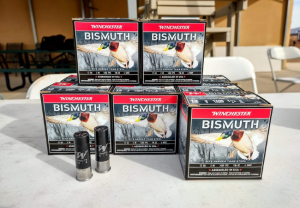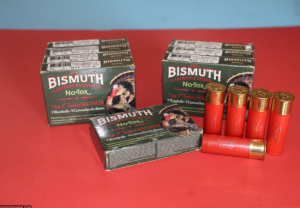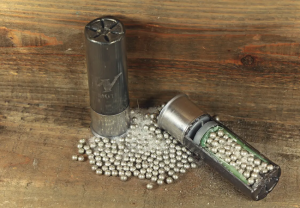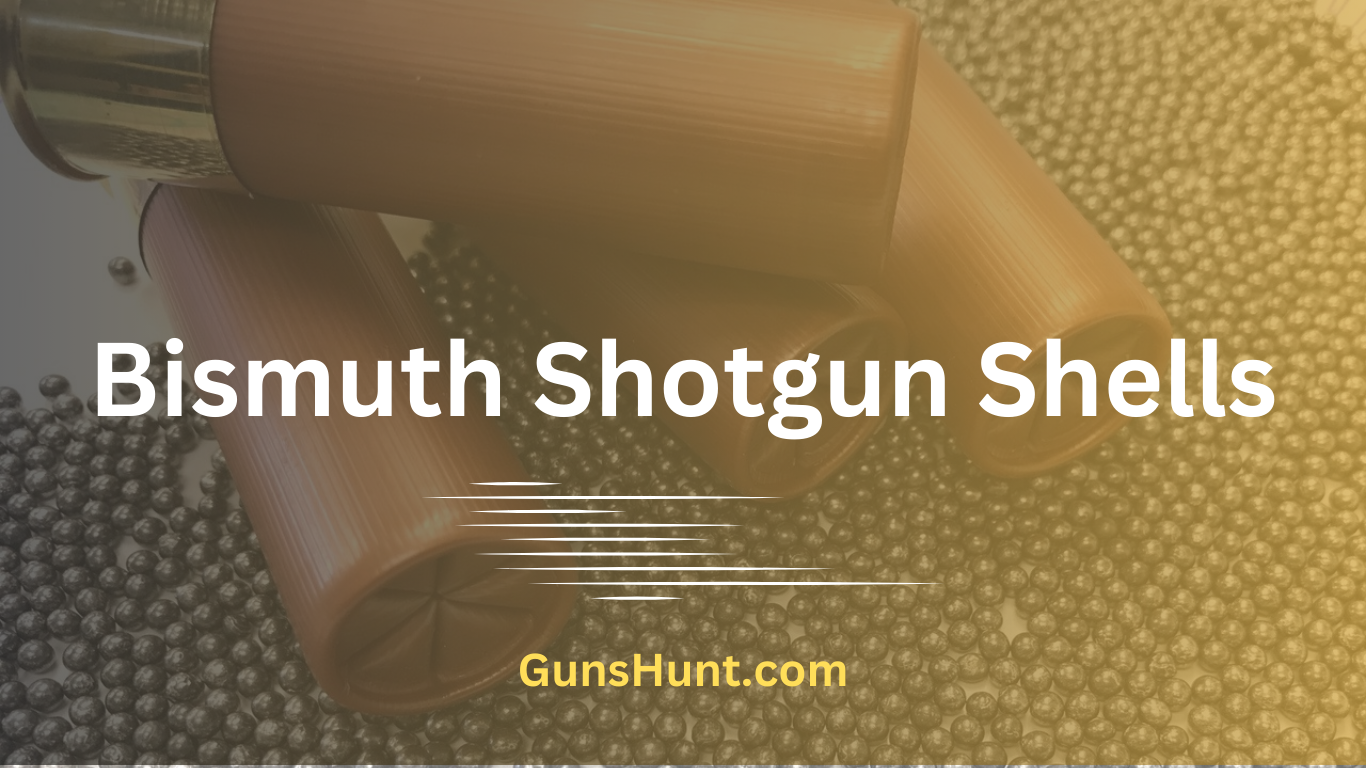When it comes to choosing the right ammunition for your shotgun, there are various factors to consider.

Bismuth shotgun shells have gained popularity among hunters and shooters due to their unique characteristics and advantages over other types of ammunition.
In this comprehensive review, we will depth into the world of bismuth shotgun shells, exploring their composition, benefits, and performance in the field.
What are Bismuth Shotgun Shells?
Bismuth shotgun shells are a type of ammunition that utilizes bismuth as the primary material for the shot.
Bismuth is a non-toxic, dense metal that has gained recognition as an eco-friendly alternative to traditional lead-based ammunition.
These shells are designed to provide reliable performance while minimizing the environmental impact.
Composition and Manufacturing Process
Bismuth shotgun shells consist of a plastic hull, a primer, propellant powder, and bismuth shot. The bismuth shot is made from high-quality bismuth alloy, which is carefully formed to ensure consistency in shape and size. The manufacturing process involves melting the bismuth alloy and then injecting it into molds, resulting in spherical shot pellets.
Benefits of Bismuth Shotgun Shells
Bismuth shotgun shells offer several advantages over other types of ammunition, making them an excellent choice for various shooting applications. Let’s explore some of the key benefits:
1. Non-Toxic and Environmentally Friendly
One of the primary advantages of bismuth shotgun shells is their non-toxic composition. Unlike lead-based ammunition, bismuth does not pose a risk to the environment or wildlife. Many hunting areas and shooting ranges have even mandated the use of non-toxic ammunition, making bismuth shells a preferred option.
2. High Density and Energy Transfer
Bismuth is a dense metal, which allows for efficient energy transfer upon impact. This results in improved stopping power and greater penetration, making bismuth shotgun shells suitable for hunting larger game such as waterfowl, upland birds, and even deer. The high density of bismuth also contributes to tighter patterns and enhanced accuracy.
3. Reduced Barrel Fouling
 Compared to some other shotgun shell types, bismuth ammunition tends to produce less barrel fouling. The reduced fouling means you can shoot for longer durations without having to clean your shotgun as frequently.
Compared to some other shotgun shell types, bismuth ammunition tends to produce less barrel fouling. The reduced fouling means you can shoot for longer durations without having to clean your shotgun as frequently.
This advantage not only saves time but also ensures consistent performance throughout your shooting session.
4. Versatility and Range of Loads
Bismuth shotgun shells are available in a wide range of loads, giving shooters the flexibility to choose the most appropriate option for their specific needs. Whether you are targeting fast-flying ducks or pursuing upland game birds, there is a bismuth load tailored to your requirements. The versatility of bismuth shells makes them suitable for various shooting disciplines.
Performance Factors
Now that we have explored the benefits, let’s examine some key performance factors to consider when using bismuth shotgun shells:
1. Pellet Size and Velocity
Bismuth shotgun shells are available in different pellet sizes to accommodate various shooting scenarios. Smaller shot sizes, such as #7 or #8, are commonly used for upland bird hunting, while larger shot sizes like #2 or #4 are preferred for waterfowl hunting and larger game. The velocity of the shells can also affect their performance, with higher velocities typically providing flatter trajectories and increased impact energy.
2. Pattern Density and Consistency
Pattern density refers to the concentration of pellets within a given area at a specific distance. Bismuth shotgun shells generally offer excellent pattern density due to their high density and consistent spherical shape. This enables shooters to deliver more pellets on target, increasing the chances of a successful hit.
3. Recoil Management
Recoil can significantly impact shooter comfort and accuracy. Bismuth shotgun shells tend to have slightly less recoil compared to some other types of ammunition, making them more comfortable to shoot. Reduced recoil allows for quicker follow-up shots, especially in situations where multiple targets are present.
Conclusion
Bismuth shotgun shells provide a compelling alternative to traditional lead-based ammunition. Their non-toxic nature, high density, and versatility make them an excellent choice for hunters and shooters seeking reliable performance while minimizing environmental impact.
With a wide range of loads and benefits such as reduced barrel fouling and manageable recoil, bismuth shotgun shells have proven their worth in the field. Consider giving them a try for your next shooting endeavor and experience the advantages firsthand.
FAQ
Q: What are Bismuth Shotgun Shells?
A: Bismuth shotgun shells are a type of ammunition that uses bismuth as the primary material for the shot, offering reliable performance while minimizing environmental impact.
Q: What are the benefits of Bismuth Shotgun Shells?
A: Bismuth shotgun shells have several advantages, including being non-toxic and environmentally friendly, providing high density and energy transfer for improved stopping power, penetration, and accuracy, as well as reducing barrel fouling.
Q: Why are Bismuth Shotgun Shells considered environmentally friendly?
A: Bismuth shotgun shells are considered environmentally friendly because bismuth is a non-toxic metal, unlike lead-based ammunition, which poses risks to the environment and wildlife.
Q: What is the manufacturing process of Bismuth Shotgun Shells?
A: Bismuth shotgun shells are manufactured by melting a bismuth alloy and injecting it into molds to form spherical shot pellets. The shells consist of a plastic hull, a primer, propellant powder, and bismuth shot.

